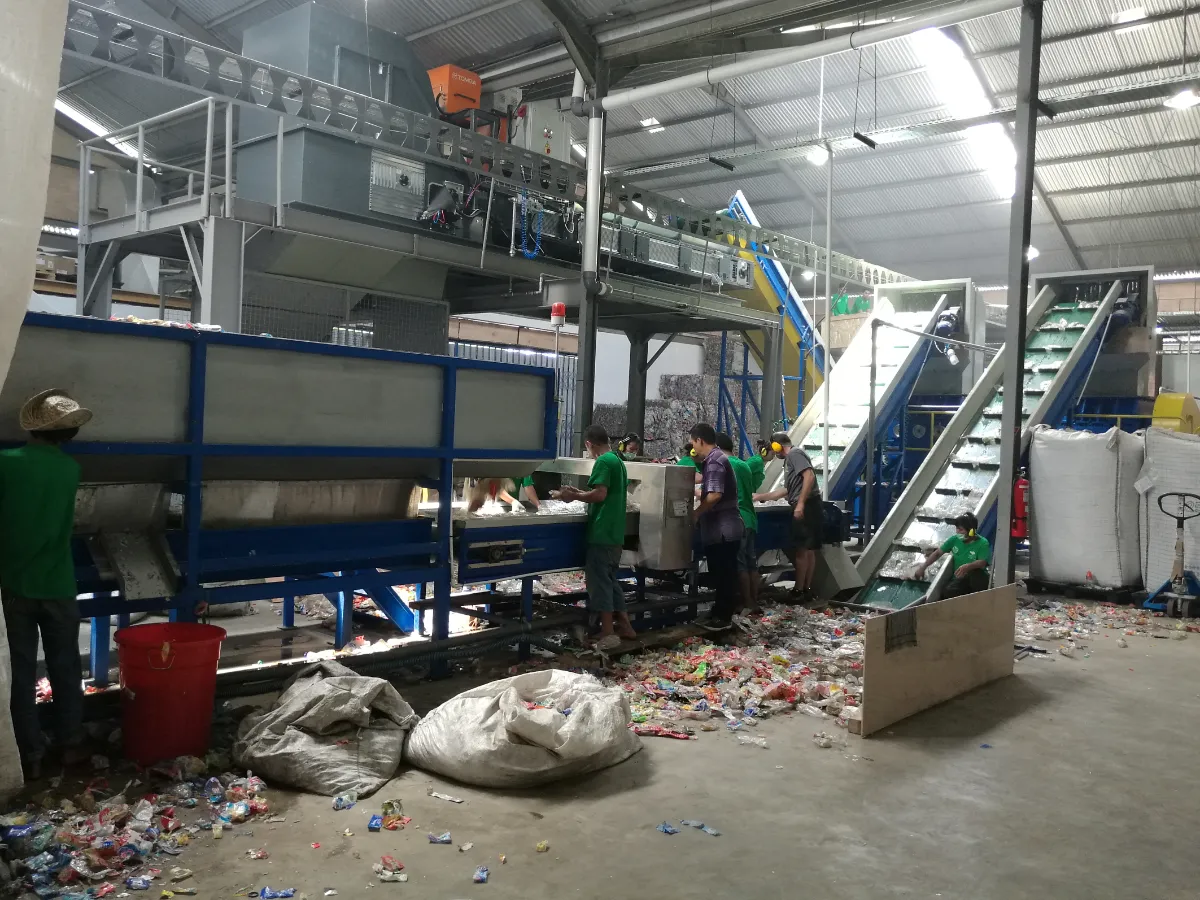The quest for sustainable solutions in the plastic recycling industry has led to significant advancements in PET bottle recycling technologies. With the increasing demand for eco-friendly practices, the development of advanced “pet bottle recycling machines” is at the forefront of this green revolution. This article explores the latest innovations and how they are transforming the recycling landscape.
Contents
Cutting-Edge Innovations in PET Recycling
Enhanced Pre-treatment Processes
Modern “pet bottle recycling machines” now incorporate sophisticated pre-treatment processes, such as improved shredding and washing systems. These advancements allow for the efficient removal of contaminants and labels, ensuring a purer PET flake output. This is a crucial step towards enhancing the quality of recycled PET, making it suitable for a wider range of applications.
Vacuum-Assisted Resin Drying
The introduction of vacuum-assisted resin drying technologies has revolutionized the drying process, significantly reducing energy consumption and improving the quality of the recycled PET. By operating under vacuum conditions, these systems can achieve lower moisture levels in the PET flakes, which is critical for the subsequent processing stages.
Chemical Recycling Techniques
Chemical recycling is a groundbreaking approach that breaks down PET into its monomers, which can then be polymerized back into virgin-quality PET. This technology not only opens the door to infinite recycling loops for PET plastic but also addresses the challenge of recycling colored or contaminated PET bottles that are difficult to process using mechanical methods.
IoT Integration for Efficiency and Quality Control
The integration of the Internet of Things (IoT) with “pet bottle recycling machines” offers unprecedented levels of efficiency and quality control. IoT-enabled devices can monitor machine performance in real-time, predict maintenance needs, and optimize operational parameters. This ensures consistent quality of the recycled PET output and maximizes the efficiency of the recycling process.
The Impact of Advanced Recycling Technologies
These technological advancements are not just enhancing the efficiency and effectiveness of PET bottle recycling; they are also making a significant impact on the environment. By improving the quality of recycled PET, these innovations support the shift towards a circular economy, where plastic never becomes waste. Additionally, the energy savings from these technologies contribute to the reduction of the carbon footprint of the recycling process.
The Future of PET Bottle Recycling
The future of PET bottle recycling looks promising, with ongoing research and development aimed at improving recycling technologies even further. Innovations such as enzyme-based recycling and enhanced sorting technologies using artificial intelligence are on the horizon, promising to further revolutionize the PET recycling industry.
In conclusion, the advancements in “pet bottle recycling machines” and technologies are paving the way for a more sustainable and efficient recycling ecosystem. As these technologies continue to evolve, the dream of a zero-waste future becomes increasingly attainable.
Frequently Asked Questions (FAQs)
What is a PET bottle recycling machine?
A PET bottle recycling machine is a specialized equipment designed to process post-consumer PET bottles into reusable material, such as flakes or pellets, for manufacturing new products.
How does PET bottle recycling benefit the environment?
Recycling PET bottles significantly reduces plastic waste, conserves resources by reusing materials, and decreases carbon emissions associated with producing new plastic.
What are the latest advancements in PET bottle recycling technologies?
The latest advancements include enhanced pre-treatment processes, vacuum-assisted resin drying, chemical recycling techniques, and the integration of IoT for improved efficiency and quality control.
Can colored or contaminated PET bottles be recycled?
Yes, with advancements like chemical recycling, even colored and contaminated PET bottles can now be processed into high-quality recycled PET.
Is recycled PET as good as virgin PET?
Thanks to modern recycling technologies, recycled PET can now achieve quality levels comparable to virgin PET, making it suitable for a wide range of applications, including food-grade packaging.
INQUIRIES
To get the latest prices and lead times, send us a message using the form below.




